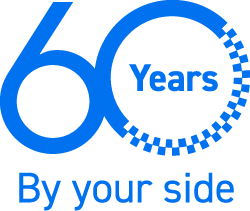When you find yourself in need of some extra funds for an upcoming expense, we’re here to guide you through the borrowing options available. Our goal is to help you make a choice that suits your unique situation.
We understand that there are plenty of good reasons to consider borrowing money, whether it’s for a big purchase like a car or home renovations or simply to manage your day-to-day expenses more efficiently.
When it comes to choosing the right option for you, you’ve got a few great choices, like personal loans, overdrafts, and credit cards. Here we explore the options to help you make the right choice for your circumstances. Additionally, you can get in touch with us if you would like to discuss your options.
How these options work
A personal loan provides a lump sum of money, which needs to be repaid regularly over a set period. Interest is charged on the entire amount of the loan.
An overdraft is attached to an everyday transaction account and lets you access additional funds when your account balance reaches zero. You can draw as much as you need up to a pre-approved limit. You are only charged interest if you use funds from your overdraft and only the amount that is overdrawn.
With a credit card, you are approved for a certain limit and can spend up to that limit. You are required to make a minimum repayment every month. If you don’t pay the full outstanding balance each month, you accrue interest on the outstanding balance.
To determine which product best suits your borrowing needs, think about the following factors:
How will you be spending?
Secured personal loans, backed by collateral, make them ideal for substantial purchases like a car or debt consolidation.
Credit cards, on the other hand, are popular for building credit, and accessing additional perks.
Convenience
Credit cards provide a convenient and widely accepted method of payment, allowing users to make purchases online, in-store, or over the phone. They eliminate the need to carry large amounts of cash and offer a quick and efficient way to complete transactions.
Building a Credit History
Both Personal Loans and Credit Cards can help individuals build and establish their credit history. Making timely payments contributes positively to a person’s credit score, which is crucial for future borrowing, such as obtaining a mortgage.
Access to Emergency Funds
Credit cards can serve as a financial safety net in emergencies or unexpected situations where immediate funds are needed. They provide a readily available source of credit that can be used to cover urgent expenses.
Overdrafts can also provide emergency funds to help you maintain financial stability, as well as save overdrawn fees and embarrassment due to there not being enough cash in your account when you are paying at the counter.
Interest rates
Fixed-rate loans provide stability and protection against interest rate increases, while variable-rate loans offer the potential for lower initial rates and flexibility in a changing interest rate environment.
The fixed rate available on personal loans offers stability, ensuring that customers can plan their budgets effectively. This predictability enables borrowers to manage their repayments with confidence, fostering financial discipline and responsibility.
How quickly do you need the money?
Unsecured personal loans provide quick access to funds without requiring collateral for a variety of loan purposes.
Unsecured loans often use the strength of your cash flow as security, instead of physical assets, and are generally for smaller amounts, so they may be approved quickly, as less upfront information is required.
Parts of a tool kit
All of these options may have a role to play in empowering you to achieve your financial goals and improve your overall quality of life.
The real strength of these credit tools lies in their ability to complement each other, creating a holistic financial strategy. For instance, you might use a credit card for everyday expenses, an overdraft as a short-term buffer, and a personal loan for significant life events or investments.
By strategically combining these financial tools, you can navigate various financial scenarios with confidence and flexibility.
Spotlight articles are prepared without taking into account your objectives, financial situation, or needs and are published for information purposes only. You should consider the appropriateness of any content to your circumstances. Visit Important documents to access Terms and Conditions and the Financial Services Guide which are currently available electronically for products of Police Bank Limited. Target Market Determinations are available here. Loan applications are subject to lending criteria and credit approval. Interest rates are subject to change. Fees and charges may apply.

